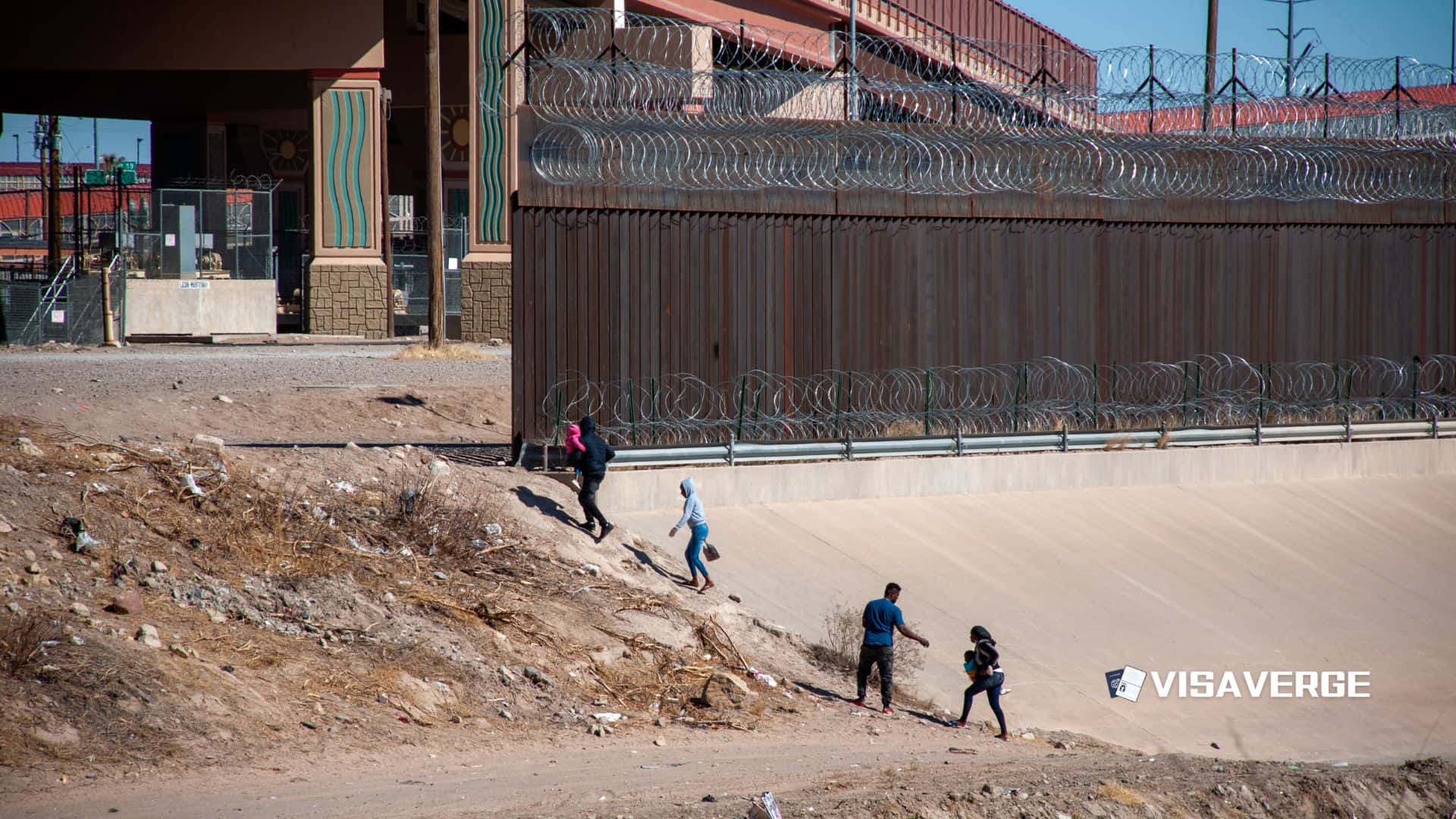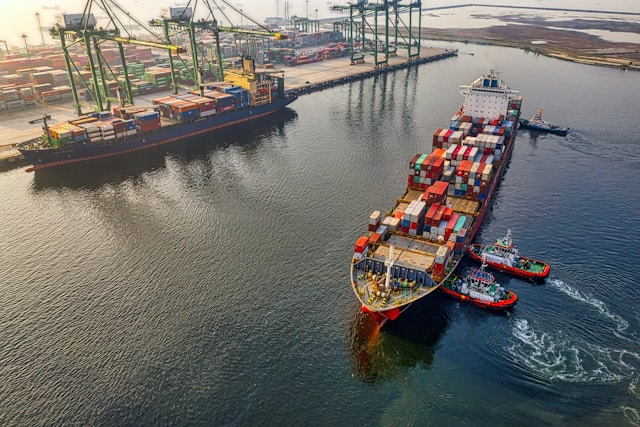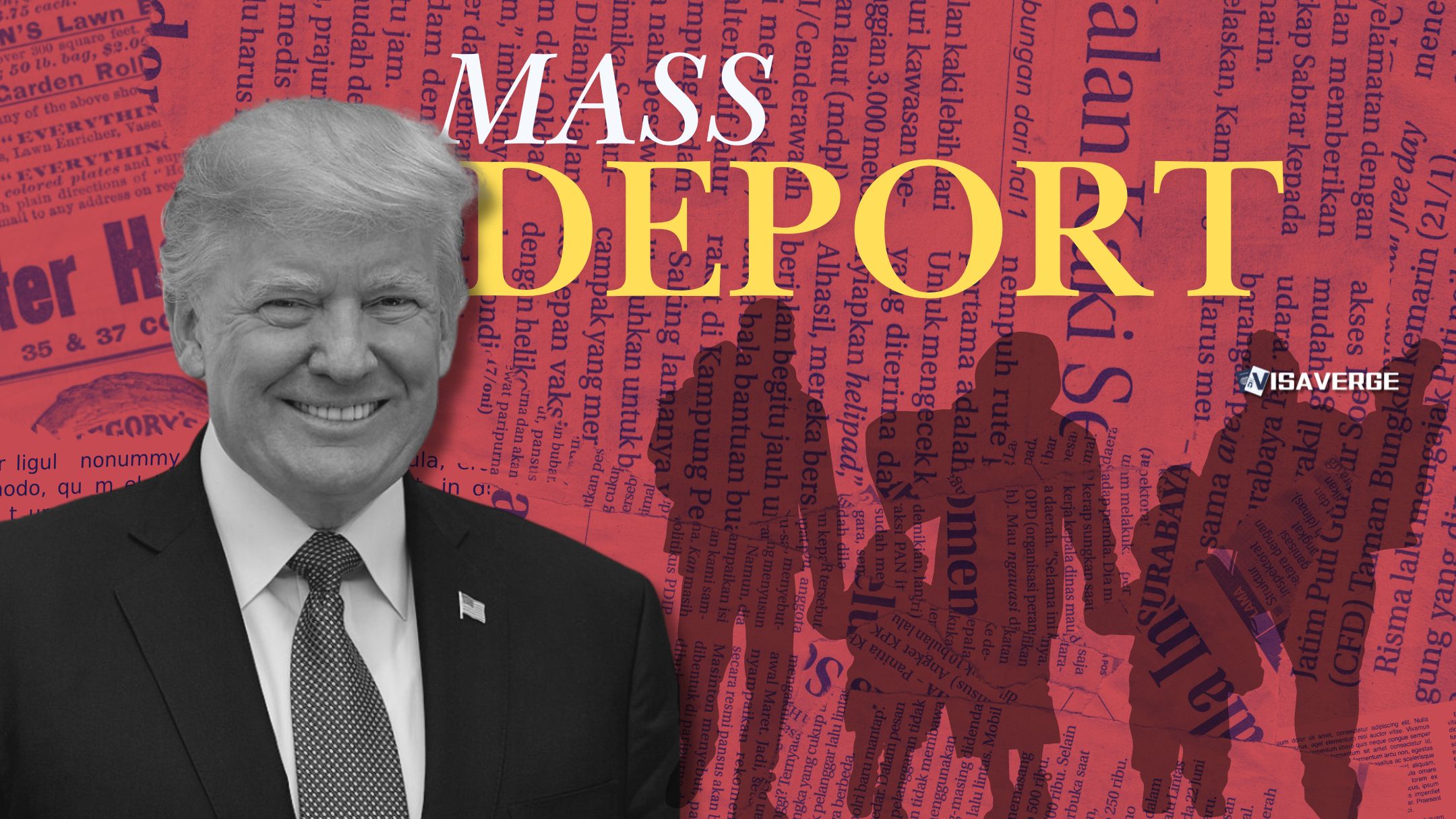Key Takeaways
• President Trump’s 2025 proposal offers temporary passes to non-violent undocumented workers in agriculture and hospitality.
• Employers must sponsor workers, verify backgrounds, and workers must register with DHS and pay taxes.
• No formal policy enacted; risks include data misuse, deportation, and legal uncertainty remain high.
President Trump’s 2025 Proposal for Temporary Passes for Undocumented Immigrants: An In-Depth Analysis
Purpose and Scope

This analysis examines President Trump’s June 2025 proposal for a “temporary pass” system for undocumented immigrants working in critical sectors of the United States 🇺🇸 economy. The goal is to provide a clear, unbiased overview of the proposal’s intent, possible process, and potential effects on workers, employers, and the broader immigration system. The content draws on official statements, policy documents, and reactions from key stakeholders to offer a comprehensive picture of the current situation and what may lie ahead.
Methodology
The analysis is based on:
– Public statements by President Trump and administration officials
– Official policy documents and executive orders released in 2025
– Reactions from industry groups, immigrant advocacy organizations, and legal experts
– Recent news coverage and government updates as of June 30, 2025
Information is organized to highlight key findings, present data in accessible formats, and compare the proposal to past and current immigration policies. Where possible, links to official government resources are included for readers seeking further details.
Key Findings
- President Trump has proposed a “temporary pass” for non-violent undocumented immigrants working in sectors like agriculture and hospitality, but no formal policy or process has been implemented as of June 30, 2025.
- The proposal aims to balance strict immigration enforcement with the economic needs of industries that rely heavily on undocumented labor.
- The system would require employer sponsorship, worker registration with the Department of Homeland Security (DHS), and proof of tax compliance.
- There are significant concerns about the risks to undocumented immigrants, including the potential for data collected during registration to be used for future enforcement actions.
- Legal uncertainty remains high, as no executive order or legislation has been enacted to formalize the program.
Data Presentation and Visual Description
To help readers quickly understand the main elements of the proposal, the following table summarizes the key features:
| Element | Details (as of June 30, 2025) |
|---|---|
| Target Population | Non-violent undocumented immigrants in agriculture and hospitality sectors |
| Status | Proposal under discussion; not yet implemented |
| Employer Role | Employers would verify worker eligibility and criminal background |
| Worker Requirements | Registration with DHS, tax compliance, no violent criminal record |
| Risks | Potential for future enforcement, deportation, or prosecution |
| Legal Status | No formal executive order or legislation enacted |
| Stakeholder Concerns | Economic stability vs. risk of data misuse and mass deportation |
Comparisons, Trends, and Patterns
Historical Context
The idea of granting temporary legal status to undocumented immigrants is not new in the United States 🇺🇸. Over the past several decades, Congress has debated various “guest worker” and temporary legalization programs, especially for agricultural workers. However, political disagreements have prevented most of these proposals from becoming law.
President Trump’s current approach differs from previous efforts in several ways:
– The focus is on temporary, sector-specific relief rather than a broad path to permanent residency or citizenship.
– The proposal is paired with aggressive enforcement measures, including mass deportation plans and the rollback of previous parole and asylum programs.
– The administration has introduced a new registration requirement for certain undocumented immigrants, raising concerns about the use of collected data for enforcement.
Current Policy Environment
Since returning to office in January 2025, President Trump has prioritized strict border control and immigration enforcement. Key actions include:
– Declaring a border emergency and deploying military resources to the southern border
– Issuing executive orders to restrict asylum and parole pathways
– Introducing a registration requirement for certain undocumented immigrants, effective April 11, 2025
These measures have created a climate of uncertainty and fear among undocumented immigrants and their families, as well as among employers who rely on their labor.
Stakeholder Perspectives
President Trump and Administration Officials
President Trump has repeatedly emphasized the need for strong border control and the removal of undocumented immigrants who have committed crimes. However, he has also acknowledged the economic reality that some industries, such as farming and hospitality, depend on migrant labor. In a June 29, 2025 interview, he stated, “The farmer knows. He is not going to hire a murderer,” suggesting that employers should have a say in which workers are allowed to stay temporarily.
Agricultural and Hospitality Industries
These sectors are among the largest employers of undocumented immigrants in the United States 🇺🇸. Industry leaders warn that mass deportations could lead to severe labor shortages, higher food prices, and disruptions in services. They generally support measures that would allow their workers to remain legally, at least on a temporary basis.
Immigrant Advocacy Groups
Organizations that support immigrant rights are deeply concerned about the risks associated with any registration or temporary pass system. They point out that, under the current administration’s enforcement priorities, data collected during registration could be used to identify, detain, and deport undocumented immigrants. They also note the lack of legal protections for participants if the program is later rescinded.
Legal Experts
Lawyers and policy analysts caution that, without clear legislative or regulatory backing, any temporary pass program would be vulnerable to legal challenges and abrupt policy changes. They advise undocumented immigrants to seek legal counsel before participating in any new registration or temporary pass initiative.
Policy Implications and Practical Effects
If President Trump’s temporary pass proposal is implemented, it could have several practical effects:
For Undocumented Immigrants:
– Temporary Relief: Eligible workers in agriculture and hospitality could remain in the United States 🇺🇸 legally for a limited time, provided they meet all requirements.
– Tax Compliance: Workers would need to pay taxes, which could help them build a record of legal employment.
– Legal Risk: Participation could expose workers to future enforcement actions if the program is ended or if they fail to comply with its terms.
For Employers:
– Labor Stability: Employers could retain experienced workers who are essential to their operations.
– Administrative Burden: Employers would be responsible for verifying worker eligibility, tracking compliance, and potentially facing penalties for errors or violations.
– Legal Uncertainty: Without clear legal protections, employers could face risks if the program is challenged or reversed.
For the U.S. Economy:
– Industry Stability: The proposal could help stabilize key sectors that rely on undocumented labor, preventing disruptions in food production and hospitality services.
– Tax Revenue: Increased tax compliance by undocumented workers could generate additional revenue for federal and state governments.
Step-by-Step Process (If Implemented)
As of June 30, 2025, no official process has been published. However, based on President Trump’s statements and related policy actions, a likely process would include:
- Employer Application: Employers in eligible sectors (such as agriculture and hospitality) would apply for temporary passes for their undocumented workers.
- Worker Registration: Workers would be required to register with the Department of Homeland Security (DHS), providing personal and employment information.
- Background Check: Employers would certify that workers have no violent criminal history.
- Tax Compliance: Workers would need to demonstrate tax payment or agree to payroll tax withholding.
- Issuance of Temporary Pass: Upon approval, workers would receive documentation allowing temporary legal presence for employment purposes.
- Ongoing Compliance: Both employers and workers would be subject to periodic review and compliance checks.
Note: This process is speculative and based on available statements. Official procedures may differ if and when the policy is formally enacted. For the most current information, visit the Department of Homeland Security’s official website.
Risks and Limitations
Registration and Data Use
One of the main concerns raised by immigrant rights organizations is the risk that data collected during registration could be used for enforcement purposes. If the administration decides to end the program or change its priorities, registered workers could be more easily identified and targeted for deportation.
Legal Uncertainty
Because no formal executive order or legislation has been enacted, the legal status of any temporary pass program remains unclear. Participants could find themselves in a precarious position if the program is challenged in court or reversed by future administrations.
Employer Burden
Employers would bear significant responsibility for vetting and tracking workers, which could create administrative and legal risks. Mistakes or non-compliance could result in penalties or loss of access to the program.
Lack of Long-Term Security
The proposal offers only temporary relief, with no path to permanent residency or citizenship. Workers and employers would need to plan for the possibility that the program could end at any time.
Evidence-Based Conclusions
- The temporary pass proposal reflects an attempt to balance strict immigration enforcement with the economic needs of key industries.
- While the proposal could provide short-term relief for some undocumented immigrants and their employers, it carries significant risks due to legal uncertainty and the potential for future enforcement actions.
- The lack of a formal policy framework means that both workers and employers face ongoing uncertainty.
- As reported by VisaVerge.com, many experts recommend that undocumented immigrants seek legal advice before participating in any new registration or temporary pass program.
Limitations of the Analysis
- No formal executive order or legislative text has been released as of June 30, 2025, so much of the analysis is based on public statements and unofficial reports.
- The actual process and requirements could change significantly if and when the policy is implemented.
- The analysis does not include detailed information about how the program would interact with existing immigration laws or other enforcement priorities.
Practical Guidance and Next Steps
- For Undocumented Immigrants: Do not register or provide personal information to any government agency without first consulting a qualified immigration attorney. Stay informed by monitoring official DHS announcements and updates from reputable community organizations.
- For Employers: Prepare for possible changes by reviewing your workforce and consulting with legal counsel about potential risks and responsibilities.
- For Advocates and Community Groups: Continue to educate affected communities about their rights and the risks associated with registration or participation in new government programs.
Official Resources
For the latest updates on immigration policy and registration requirements, visit the Department of Homeland Security’s official website. Community organizations such as the National Immigration Law Center and the American Immigration Council also provide valuable resources and guidance.
Summary Table: Key Elements of Trump’s 2025 Temporary Pass Proposal
| Element | Details (as of June 30, 2025) |
|---|---|
| Target Population | Non-violent undocumented immigrants in agriculture and hospitality sectors |
| Status | Proposal under discussion; not yet implemented |
| Employer Role | Employers would verify worker eligibility and criminal background |
| Worker Requirements | Registration with DHS, tax compliance, no violent criminal record |
| Risks | Potential for future enforcement, deportation, or prosecution |
| Legal Status | No formal executive order or legislation enacted |
| Stakeholder Concerns | Economic stability vs. risk of data misuse and mass deportation |
Conclusion
President Trump’s proposal for a temporary pass for undocumented immigrants working in critical sectors is still in the discussion phase, with no formal policy or process in place. While the idea could help stabilize key industries and provide temporary relief for some workers, it also carries significant risks and uncertainties. Both undocumented immigrants and employers should proceed with caution, seek legal advice, and stay informed through official government channels and trusted community organizations. The situation remains fluid, and further developments are expected in the coming months.
Learn Today
Temporary pass → A limited legal credential allowing undocumented workers to remain temporarily for employment purposes.
Department of Homeland Security (DHS) → U.S. government agency overseeing immigration enforcement and registration processes for workers.
Employer sponsorship → Employers’ responsibility to verify a worker’s eligibility and criminal background for temporary passes.
Registration → Requirement for workers to provide personal and employment information to DHS for legal authorization.
Legal uncertainty → The unclear status due to absence of formal law or executive orders backing the proposal.
This Article in a Nutshell
President Trump’s 2025 plan proposes temporary passes for undocumented agricultural and hospitality workers. While aiming to balance enforcement and economic needs, the plan remains unimplemented amid legal uncertainty and data privacy fears, urging caution among workers and employers awaiting formal policy details.
— By VisaVerge.com













